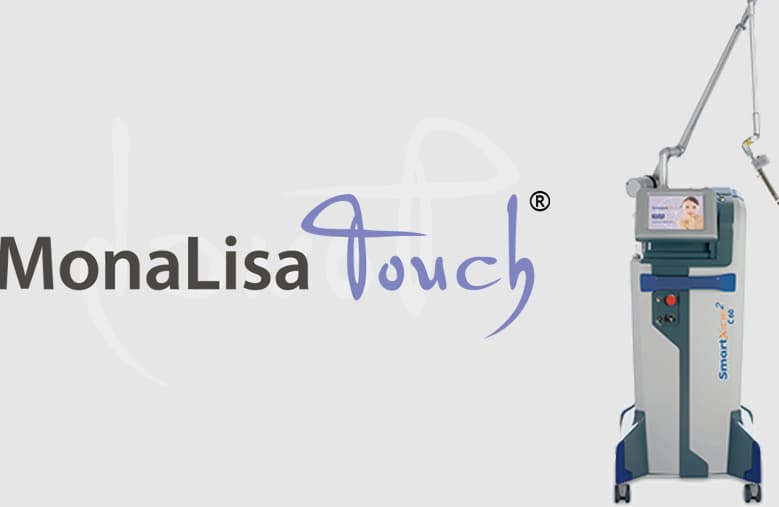In the world of medical technology, innovation often races ahead of regulation. The MonaLisa Touch device, a laser treatment promising vaginal rejuvenation, is a prime example of this challenging dynamic.
Marketed as a breakthrough for women’s health, this device now finds itself at the center of a legal storm.
A class action lawsuit filed against Cynosure, Inc., the maker of MonaLisa Touch, has thrust this medical device into the spotlight.
The suit alleges that the company engaged in deceptive marketing practices, selling a product that may be more dangerous than beneficial.
This legal action comes on the heels of a stark warning from the FDA, cautioning against the use of energy-based devices for vaginal treatments.
As medical practices grapple with the financial fallout of investing in potentially unusable equipment, patients are left wondering about the safety of treatments they may have already undergone.
MonaLisa Touch Class Action Lawsuit

This case raises critical questions about the balance between medical innovation and patient safety, the responsibilities of device manufacturers, and the role of regulatory bodies in protecting public health.
The MonaLisa Touch controversy serves as a wake-up call, reminding us that in the realm of healthcare, scrutiny must keep pace with innovation.
The Big Picture: A Medical Device in Hot Water
Hey there! Have you heard about the MonaLisa Touch? It’s a medical device that’s causing quite a stir. Let’s break down what’s happening and why it matters.
What’s MonaLisa Touch?
First things first: MonaLisa Touch is a device used for something called “vaginal rejuvenation.” I know, that’s a mouthful!
Here’s what it means in simple terms:
- It’s a laser device
- Doctors use it to treat vaginal issues
- It’s supposed to help with things like dryness and discomfort
Sounds helpful, right? Well, that’s where things get complicated.
The Big Problem: It Might Not Be Safe
Uh-oh! The FDA (that’s the Food and Drug Administration) is saying this device might be dangerous. Here’s the scoop:
- The FDA sent out a warning about devices like MonaLisa Touch
- They say these devices haven’t been proven safe or effective
- There could be serious risks, like burns or pain
Why This Matters to You?
You might be thinking, “I’m not a doctor. Why should I care?” Here’s why it’s a big deal:
- Safety first: If you or someone you know is considering this treatment, you need to know the risks
- Money matters: These devices are expensive, and now some doctors can’t use them
- Trust issues: It raises questions about how medical devices are marketed
The Lawsuit: Doctors Fighting Back
Now, here’s where it gets really interesting. Some doctors are suing the company that makes MonaLisa Touch. Let’s break it down:
- Who’s suing: A medical practice called Three R, LLC
- Who they’re suing: Cynosure, Inc. (the company that makes MonaLisa Touch)
- What they’re saying: The device was marketed in a misleading way and might be dangerous
The Money Side of Things
This device isn’t cheap. Here’s what we’re talking about:
- Cost: Over $150,000 per device
- Who bought it: Plastic surgery centers and other medical practices
Now, these doctors are stuck with an expensive machine they can’t safely use. Ouch!
What the FDA Is Worried About?
The FDA isn’t messing around. They’re really concerned about devices like MonaLisa Touch. Here’s what they’re saying:
- These devices aren’t approved for vaginal treatments
- They could cause serious problems like:
- Burns
- Scarring
- Pain during sex
- Long-lasting pain
What Was Promised vs. What’s Real?
Here’s where things get tricky. The lawsuit says MonaLisa Touch was advertised to help with:
- Menopause symptoms
- Urinary problems
- Sexual function issues
But the FDA says there’s no proof it can do these things safely.
The Legal Stuff: What the Lawsuit Claims
The doctors suing Cynosure are using some big legal words. Let’s break them down:
- Breach of warranty: The device doesn’t do what it was promised to do
- Negligent misrepresentation: The company wasn’t careful about telling the truth
- Fraudulent concealment: They might have hidden important information
- Unjust enrichment: They made money unfairly
What Do the Doctors Want?
The doctors suing Cynosure are asking for a few things:
- Money back for the expensive devices
- Compensation for other costs they’ve had
- To stop Cynosure from marketing the device this way
The Bigger Picture: Medical Device Safety
This isn’t just about one device. It raises big questions:
- How are new medical devices tested?
- How can we be sure they’re safe?
- Who’s responsible when things go wrong?
What Can Patients Do?
If you’re considering any new medical treatment, here are some tips:
- Ask questions: Don’t be shy about asking your doctor for details
- Check FDA approval: Ask if the device is FDA-approved for your specific treatment
- Research: Look up the treatment and device online
- Get a second opinion: It never hurts to talk to another doctor
- Trust your gut: If something feels off, it’s okay to say no
FAQs About the MonaLisa Touch Controversy
- Q: Is the MonaLisa Touch banned?
A: Not exactly. The FDA warned against using it for certain treatments, but it’s not officially banned.
- Q: Should I cancel my appointment if I was planning to get this treatment?
A: It’s best to talk to your doctor about the FDA warning and your options.
- Q: Will doctors get in trouble for using MonaLisa Touch?
A: They could face legal risks if they use it for treatments the FDA warned about.
- Q: Are all vaginal rejuvenation treatments dangerous?
A: Not necessarily, but it’s important to choose FDA-approved treatments and discuss risks with your doctor.
- Q: How can I tell if a medical device is safe?
A: Check if it’s FDA-approved for your specific treatment and ask your doctor about studies proving its safety.
What Might Happen Next?
This MonaLisa Touch situation could lead to some big changes:
- More testing: Medical device companies might have to do more safety studies
- Clearer marketing: Companies might be more careful about how they advertise devices
- Better regulation: The FDA might create stricter rules for new devices
- More informed patients: People might start asking more questions before trying new treatments
- Changes in medical practice: Doctors might be more cautious about adopting new technologies
Also Check:
Final Thoughts: Stay Informed, Stay Safe
This whole MonaLisa Touch controversy shows us how important it is to be careful about new medical treatments. Here are the big takeaways:
- Don’t assume new means better: Just because a treatment is new doesn’t mean it’s safe or effective
- Ask questions: It’s your body and your health. You have the right to know what’s going on
- Be skeptical of big promises: If something sounds too good to be true, it might be
- Trust, but verify: It’s okay to trust your doctor, but also do your own research
- Speak up: If you’re worried about a treatment, say something
Remember, being a smart patient isn’t about being difficult. It’s about taking charge of your health and making informed decisions. Whether you’re considering a treatment like MonaLisa Touch or any other medical procedure, stay curious, ask questions, and prioritize your safety.
This lawsuit and FDA warning are still ongoing stories. As we learn more, it might change how we think about medical devices and treatments. Stay tuned, stay informed, and most importantly, stay healthy!



